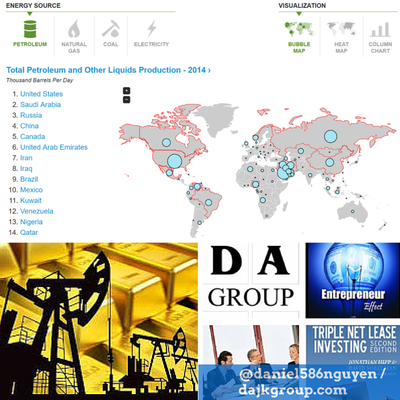How To Grow Your Wealth From 100 Million To 1 Billion Highlights: Part 1:Part 2:
Cash Flow ManagementCash flow management is the process of tracking and managing your income and expenses. This is important for both individuals and businesses. By understanding your cash flow, you can make sure that you have enough money to cover your expenses and reach your financial goals. Here are several specific steps involved in cash flow management, including forex and crypto currencies:
By following these steps, you can improve your cash flow management and achieve your financial goals. When it comes to forex and crypto currencies, it is important to be aware of the risks involved. These assets are volatile and can fluctuate in value rapidly. It is important to do your research and understand the risks before investing in them. If you are considering investing in forex or crypto currencies, it is important to use a reputable broker or exchange. You should also consider using a stop-loss order, which will automatically sell your investment if it reaches a certain price. This can help you to limit your losses if the market turns against you. It is also important to remember that forex and crypto currencies are not regulated by the government. This means that there is no guarantee that you will get your money back if you lose money investing in them. If you are not comfortable with the risks involved, you may want to consider other investment options. Tax ManagementTax management is the process of minimizing tax liabilities while complying with tax laws and regulations. Effective tax management can help individuals and businesses optimize their financial resources and maximize their wealth growth. Here are some key considerations for tax management:
Based on Tax Foundation, the corporate tax rates 2022 around the world are:
Trust & Estate PlanningTrust and estate planning involves creating a comprehensive plan to manage and distribute assets during and after a person's lifetime. It encompasses various legal and financial strategies to protect and transfer wealth according to the individual's wishes while minimizing tax implications and potential conflicts. Here are some key elements of trust and estate planning:
When it comes to offshore tax neutral jurisdictions, there are several factors to consider, such as:
Here are some additional tips for effective trust & estate planning:
Asset ProtectionAsset protection is the process of protecting your assets from creditors, lawsuits, and other legal threats. There are several different asset protection strategies available, such as setting up trusts, forming corporations, and buying insurance. Here are several specific steps involved in asset protection, including whole life insurance policies:
Whole life insurance policies can be used as an asset protection strategy. Whole life insurance policies have a cash value component, which can be used to pay for legal fees and other expenses in the event of a lawsuit. It is important to note that asset protection is a complex legal matter and should only be done with the assistance of an experienced attorney. Here are some additional tips for effective asset protection:
Charitable Planning & PhilanthropyCharitable planning and philanthropy involve making strategic decisions about giving back to society and supporting causes that align with your values. It allows you to make a positive impact while potentially enjoying tax benefits and leaving a lasting legacy. Here are some considerations for charitable planning and philanthropy:
Whole Life InsuranceWhole life insurance policies can be used as a charitable planning tool. Whole life insurance policies have a cash value component, which can be donated to charity. The death benefit of a whole life insurance policy can also be used to fund a charitable trust or foundation. It is important to note that charitable planning is a complex legal matter and should only be done with the assistance of an experienced attorney. Here are some additional tips for effective charitable planning:
In summary We cover various topics related to wealth management, including cash flow management, risk management, tax management, investment and portfolio management, trust and estate planning, asset protection, and charitable planning.
In the section on cash flow management, the process of tracking and managing income and expenses is outlined, including developing a cash flow plan and monitoring it regularly. Various investment options with the potential for significant growth, such as stocks, commercial real estate, and businesses, are discussed. The section on risk management emphasizes the importance of identifying, assessing, and mitigating risks on an ongoing basis. The potential risks include financial, operational, and compliance risks. The section also covers the need to develop risk mitigation strategies and implement them, as well as regularly reviewing the risk management plan. On the topic of tax management, strategies for planning and executing tax-efficient strategies are discussed. There are many different tax management strategies available, and it is important to work with professionals to find the ones that are right for individual needs. Trust and estate planning involve selecting trustees who are competent, trustworthy, and financially responsible. Various types of trusts, such as revocable and irrevocable trusts, are discussed. It is important to regularly review and update the trust and estate plan to ensure it still meets individual needs. To grow wealth, it is essential to research and understand the risks involved with investment options, such as forex and crypto currencies. Strategies for growing wealth include living below one's means, investing in assets with growth potential, and automating finances. Finally, the importance of balancing risk with investment objectives and risk tolerance is emphasized. We hope this information is helpful. Please contact us with further questions. IMPORTANT NOTICE: This is unofficial information and for information purposes only. This is not intended to be and must not be construed to be in any form or manner a solicitation of investment funds or a security offering. Before undertaking any action, be sure to discuss your options with a qualified advisor.
0 Comments
Leave a Reply. |
AuthorDAJK GROUP is the place where investors, business owners and entrepreneurs can research and find useful information, insight, resources, advice, guidance and inspiration for acquiring funds for their project, acquisition for their net lease commercial real estate, increasing their assets and running their profitable business. Archives
July 2023
Categories |
Services |
Company |
|



































